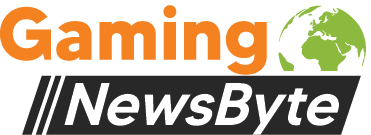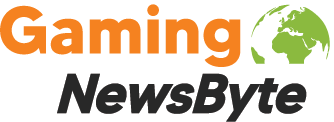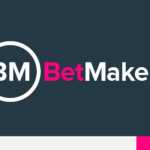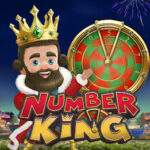Now Reading: Nigeria’s Gaming Sector: Analysis of Gambling Regulations and Market Opportunities
- 01
Nigeria’s Gaming Sector: Analysis of Gambling Regulations and Market Opportunities

Nigeria’s Gaming Sector: Analysis of Gambling Regulations and Market Opportunities
The Nigerian gaming industry has undergone a seismic shift since the Supreme Court’s November 2024 ruling, which decentralized regulatory authority to individual states.
The Nigerian gaming industry has undergone a seismic shift since the Supreme Court’s November 2024 ruling, which decentralized regulatory authority to individual states.
This decision has created a patchwork of opportun ties and challenges, with states like Lagos, Enugu, Kano, Abia Cross River, and Rivers emerging as key players in a market valued at ₦600 billion annually.
For investors, understanding these fragmented frameworks is critical to navigating a sector where over 60 million Nigerians gamble daily. This guide dissects regulatory landscapes for gambling in Nigeria, offering a roadmap for betting brands to capitalize on Africa’s fastest-growing iGaming market.
Gambling Regulation in Lagos
Lagos State Lotteries and Gaming Authority (LSLGA) is the primary regulatory body overseeing all lottery and gaming activities in Lagos State. It operates under the Lagos State Lotteries and Gaming Authority Law, 2021, which consolidates previous laws into a single framework to regulate lotteries, online sports betting, scratch cards, casinos, gaming machines, pool betting, and other gaming activities.
The LSLGA issues licenses for retail, virtual, and online gaming operations and conducts surveillance, inspections, and compliance checks to ensure operators adhere to regulations. Responsible gaming is a key focus, with operators held to high operational standards.
Taxation Requirements
- Lagos State imposes a tax rate of 2.5% on gross gaming revenue, which applies uniformly to both land-based and remote gambling operations.
- At the federal level, lottery and gaming companies pay a 7% lottery tax on net proceeds, exempting them from corporate income tax (CIT) and VAT under the National Lottery Amendment Act. However, there are ongoing discussions about aligning gaming companies with the standard 30% CIT in the future.
- Offshore gambling operators pay a 4.5% duty on player deposits via the Sentinel National Payment Gateway, exempting them from VAT and corporate income tax3.
- From January 2025, a 5% withholding tax on Nigerian gamblers’ winnings and a 15% rate for non-residents were introduced, alongside a 5% excise duty on telecommunications and gaming services.
- Licensed sportsbook operators in Lagos must pay 1% and 2% of gross monthly sales turnover to the National Lottery Regulatory Commission and National Lottery Trust Fund, respectively.
Gambling Landscape in Lagos State
- Lagos is Nigeria’s gambling hub, generating approximately $243 million in revenue in recent years, driven by widespread adoption of online betting platforms and a tech-savvy population.
- Sports betting dominates the market, especially football, which accounts for about 70% of all sportsbook bets in Nigeria.
- The dual regulatory oversight by the Lagos State Lottery Board and the National Lottery Regulatory Commission ensures compliance with both state and federal laws, making Lagos a center for sports betting innovation.
- The gambling sector contributes around $2 billion annually to Nigeria’s economy, with projections to reach $5 billion by 2027, fueled by online platforms and regulatory reforms.
Gambling Regulation in Enugu State, Nigeria
Enugu State regulates its gaming and lottery sector through the Enugu State Gaming and Lotto Commission, established under Cap 86 Revised Laws of Enugu State 2004. The commission oversees licensing, promotion, control, and taxation of gaming activities such as casinos, lotteries, lotto, pool betting, and sports betting.
Recently, the state government launched a strong initiative to revamp and regulate the gaming and lottery industry, emphasizing a zero-tolerance policy for illegal operators and makeshift gaming stands. All gaming activities must operate from permanent, professional physical outlets to enhance transparency and public trust.
Advanced technology is being deployed to monitor and standardize gaming operations, improve enforcement, and decentralize regulatory services across the state to support license registration, complaints, and compliance.
Taxation Requirements
In Enugu Sate Nigeria, the new regulations effective January 1, 2025, impose a 5% withholding tax on winnings from lotteries, gaming, and reality shows for residents and a 15% rate for non-residents. These regulations are part of a broader effort to streamline tax collection and curb evasion. Additionally, the National Lottery Amendment Act 2017 mandates a 7% Lottery Tax on domestic licensees, computed on net proceeds.
Enugu State Internal Revenue Service (ESIRS) has introduced a unified single tax payment system (e-Ticket) to eliminate multiple taxation and simplify tax payments for businesses, which likely benefits gaming operators by consolidating tax obligations under one platform.
Gambling Landscape in Enugu State
- The gambling sector is undergoing formalization with efforts to curb fraudulent practices and illegal operations.
- Sports betting and lotteries are prominent, with licensed operators required to maintain professional outlets.
- Stakeholders emphasize adopting international best practices and technological innovations to foster sustainable growth and boost confidence in the sector.
- The reforms aim to create a transparent, efficient, and lucrative gaming environment that contributes to the state’s internally generated revenue and provides employment opportunities.
What is the current gambling landscape and popular betting options in Lagos State Nigeria?
The gambling landscape in Lagos State, Nigeria, is vibrant and rapidly growing, driven largely by sports betting, which dominates the market. Football betting is the most popular form, accounting for about 70% of all sportsbook bets, reflecting Nigerians’ passion for the sport.
Popular betting options include:
- Sports Betting: Football is the top choice, but other sports like basketball, tennis, esports (e.g., FIFA, LOL, Dota 2, Counter-Strike), greyhound racing, and table tennis are also widely bet on.
- Virtual Fantasy Sports Betting: Virtual games simulate real sports events and allow betting during off-seasons, keeping punters engaged year-round. Platforms like Surebet247 and Nairabet offer these options.
- Online Betting Platforms: Leading sites licensed by Lagos State include Betway, 22Bet, MelBet, and others, offering extensive markets, live betting, and competitive odds. These platforms provide user-friendly interfaces, bonuses, and multiple payment methods.
- Casino Games: Online casinos in Lagos offer slots, roulette, blackjack, live dealer games, progressive jackpots, and poker, catering to diverse player preferences.
The market benefits from a large mobile and internet subscriber base, with increasing online engagement. Lagos State’s regulatory framework ensures licensed operators maintain standards, contributing to a secure betting environment.
Read Also: iGaming Regulation and Market Prospects in Rwanda 2025
How to Get a Gambling License in Nigeria: What You Need to Know
Navigating Nigeria’s gaming industry can feel like walking through a maze—with federal and state laws, multiple regulators, and evolving rules. Whether you’re looking to launch a sports betting platform, run an online casino, or offer mobile-based games, getting the right license is a must.
Let’s break down what the process looks like and what you need to get started
Who Regulates the Industry?
At the national level, the National Lottery Regulatory Commission (NLRC) takes the lead. But that’s not the whole story—more than half of Nigeria’s 36 states have their own gaming laws and bodies. That means you might need to deal with both federal and state regulators, depending on where and how you want to operate.
Main regulators include:
- National Lottery Regulatory Commission (NLRC)
- State Gaming Authorities & Inland Revenue Services
Types of Gaming Licenses Available
The type of license you’ll need depends on the service you’re offering. Here are the most common ones:
- Sports Betting License – Covers online sports betting.
- Casino License – For all online casino games
- Interactive Mobile Gaming License – For games of chance or skill on mobile.
Licenses can be issued by either the federal government or individual states, depending on the operation’s location and scope.
Step-by-Step Guide to Getting Licensed
Step 1: Meet the Basic Requirements
Before you apply, ensure the business is registered and meets these criteria:
- Registered with Nigeria’s Corporate Affairs Commission (CAC)
- Minimum Share Capital
- ₦30 million for local companies
- ₦100 million if there’s foreign ownership
- Audited Financials to prove stability
- A clear Business Plan
- Technical details on your gaming software, hardware, and security
Step 2: Submit Your Application
Once you’re ready, send your application to either the NLRC or your state’s gaming authority. You’ll need:
- A completed form
- Application/license fees (varies)
- A bank guarantee (in some cases)
Step 3: Background Checks
Regulators will want to know you’re legit. They’ll do:
- A “Fit and Proper” Test for you and your team
- A compliance check with anti-money laundering and other laws
Step 4: Site Inspections
Expect a visit. Authorities may inspect your office or digital setup to make sure everything is in line with standards—especially your tech and security protocols.
Step 5: Get Licensed
If everything checks out, you’ll receive your license. It will spell out:
- How long the license is valid
- Any restrictions or conditions
- Your obligations for regular reporting
Important Things to Keep in Mind
Federal vs. State Rules
Some licenses are accepted nationwide, while others only cover specific states. If you want to operate in more than one state, you might need multiple licenses.
Online & Physical Operations
One license can usually cover both online and land-based services—as long as they stay within the licensing authority’s area.
Tech & Security Matter
With the rise of digital gaming, regulators expect you to have proper cybersecurity, responsible gaming features, and fair play systems in place.
Consumer Protection is Key
Operators must:
- Prevent underage gambling
- Offer self-exclusion for problem gamblers
- Be transparent with users about terms and conditions
Social & Economic Responsibility
Beyond profits, the gaming industry is expected to contribute to:
- Responsible gaming awareness
- Local job creation
- Community development projects
Final Thoughts
Getting a gambling license in Nigeria isn’t exactly plug-and-play. It involves a lot of paperwork, background checks, inspections, and ongoing compliance. Given the regulatory complexities—especially the federal vs. state angle—it’s wise to consult with professionals who know the ropes.
Need help? The Betworks Consulting Africa has the experience to guide you through the entire process.
see our services here: https://www.betworksconsulting.africa/about-us/














